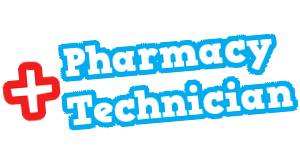Thinking of Taking Pharmacy Technician Classes?
The classes that you take to become a pharmacy technician will vary slightly depending upon which school you enroll in, but the overall concepts are essentially the same. Here you can get a look at some of the more commonly taken classes by pharmacy technician students.
Pharmacology – This course involves the study of drug action, their uses and their effects. Pharmacology analyzes the way a drug, or a foreign chemical substance, will interact with a living organism. This class also covers the nature, source and properties of pharmaceutical drugs.
Anatomy – This class that a pharmacy technician student takes deals with a branch of biology that analyzes the structures of living things, and particularly in the medical field, the human body. This course can be studied macroscopically, that is, observing what can be seen only with the naked eye, as well as microscopically which deals mainly with cells and their microscopic structures. Most medical fields must take courses in anatomy.
Physiology – This course deals with the study of organ systems within the human body and how they function together in a healthy human body. There are several different organ systems in the human body such as the circulatory system, the immune system, the respiratory system, the nervous system, the lymphatic system, the digestive system, the musculoskeletal system and others.
Chemistry – This course deals with the natures, properties and structures of various kinds of matter. Chemistry takes a look at different kinds of molecules and how they react alone as well as in reaction to other substances.
Find out what it's like to go behind the counter and study to become a Pharmacy Technician with this quick video:
Pharmaceutical Calculations – This course that a person takes who wants to become a pharmacy technician deals with the calculations as they are related to dosing, solution behavior, injections, concentrations as well as other different facets or the preparation of prescriptions.
Medical and Pharmaceutical Terminology – This course deals with the basis of many medical terms which make up the basis of the medical dictionary or lexicon. This book basically deals with the structure of the building of scientific and medical words. These words give a description of the conditions and diseases, drugs and treatments using not only root words but prefixes and suffixes as well.
Dosage Forms – This pharmacy technician course covers the different forms that medications can take such as pills, suppositories, capsules, injections and others. Students will learn what the best method is of giving a medication based on a patient’s individual circumstances. For example, you would not want to give an oral capsule to a patient who is vomiting.
Drug Preparation – This course teaches the student the skills that she will use when she prepares all sorts of medications. This will include measuring and mixing and packaging and labeling. Since this is a course based on skill rather than science, the course content may vary depending upon which school you attend.
Pharmacy Law - This course studies state and federal laws affecting pharmaceutical drugs as well as pharmacy practice. This course’s content may be somewhat different according in which state you take the course in although some courses may include laws that are unique to every state.
Compounding Medications – These specialized courses are designed to teach the pharmacy technician student how to mix and create medications that have been customized to suit the specific needs of a patient.
Pharmacy Administration – This is a practical course that teaches the pharmacy technician student the overall operation and management of a clinical or retail pharmacy. It may be that course such as this may vary depending upon which school the student attends; some may include classes in business and management, and still other courses may give the student an education based more on skill. It would always be a good idea to ask the representative of the school for more specific details about different courses.
Medical Billing – This course deals with the interaction of the pharmacy technician with insurance agencies and doctors and introduces the student to the use of the system of universal medical coding. This code classifies every medical condition along with its treatment into various sets of numeric codes.
Pharmacy Computing – These pharmacy technician classes cover the use of the computer as it applies to the pharmaceutical industry. This includes certain programs used for record keeping, inventory and customer interactions. Depending upon which school the pharmacy technician student attends, the content of this pharmacy computing course may differ.
